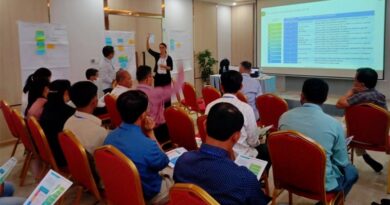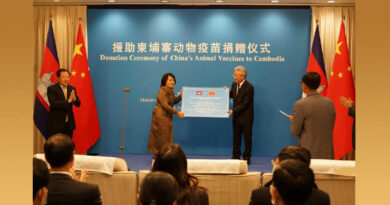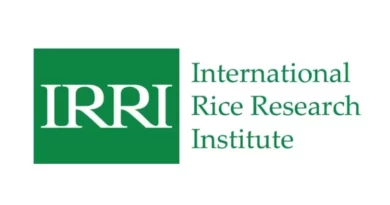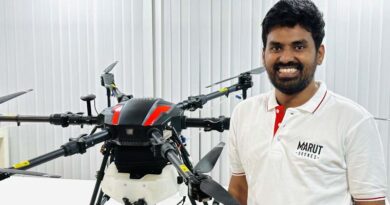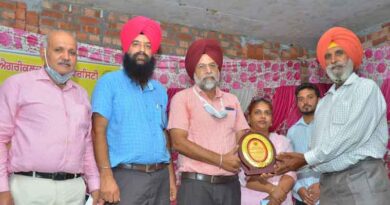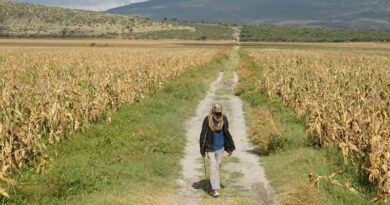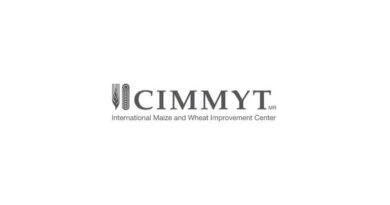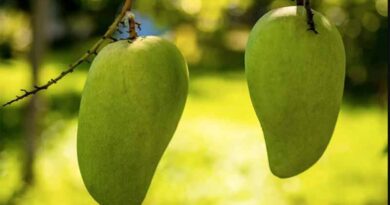Transforming Agriculture: A Day in Cambodia with Wanjiku Guchu
02 February 2024, Cambodia: I’m Wanjiku Guchu, and as the program manager for the Excellence in Agronomy Initiative, I’ve witnessed firsthand the power of innovation to transform lives. Recently, my journey led me to Cambodia’s Pouk District, Siem Reap Province,where I delved into the impact of our direct seeding technologies on local rice farmers.
Our day unfolded alongside a remarkable farmer Mr. Luon Heng, who had transitioned from cultivating rice to building innovative mechanization tools. His direct seeding technology, gaining traction among his peers, addressed a common challenge faced by small entrepreneurs – the lack of resources to test and refine their ideas. Excellence in Agronomy stepped in, partnering with this forward-thinking individual to provide technological support and tailor his innovation to the specific needs of local farmers.
The results were astonishing. In just two months, he’d sold 11 of his machines! He is now involved in a marketplace app called Tonlesap App, a platform for agricultural product trades and technical knowledge sharing, where his machines can be accessed by farmers from various parts of the country. This platform facilitates agricultural product exchanges and the sharing of technical knowledge. Farmers from different parts of the country can now access his machines through this platform.
His unique understanding, nurtured by years of working the land himself, allowed him to personalize his technology for maximum impact. Witnessing the subsequent increase in production and yields was a true testament to the reach and effectiveness of our initiative.
Equally exciting was the involvement of this farmer’s daughter and son in the enterprise. This intergenerational collaboration highlighted the importance of exposing young people to agriculture not just as a family tradition, but as a fertile ground for innovation and solutions. It offered a glimpse into the potential for generational change within the agricultural landscape.
Our work at Excellence in Agronomy goes beyond borders. As a global initiative, we provide localized, demand-driven agronomy solutions to farmers worldwide. This cross-pollination of ideas across the global south not only fosters knowledge sharing but also expedites the scaling of effective solutions. Over the years, I’ve learned to think globally while acting locally, recognizing that the most meaningful results come from collaboration with farmers and all stakeholders.
The heart of our approach lies in listening to farmers’ needs and co-creating solutions. We acknowledge their limited resources and strive to develop sustainable solutions that endure beyond project lifespans. Environmental protection and inclusivity are cornerstones of our work, ensuring fair opportunities for women, men, girls, and boys alike.
The spirit of commitment, hard work, resourcefulness, resilience, and generosity runs deep within smallholder farmers across the globe. Leaving a farm after a day spent alongside them leaves you not only with a full stomach but also a full heart, brimming with appreciation for the collective efforts towards agricultural prosperity.
In my broader work, inclusivity has been a constant challenge. Tailoring interventions to meet unique regional, sectoral, and individual needs while aiming for systemic transformation is a delicate dance. Yet, critical themes like gender, youth, and climate change are never afterthoughts. Instead, they are woven into the fabric of every project, driving the design of solutions that address them simultaneously. Empowering women farmers, for instance, directly contributes to food security and climate resilience.
My current role with the Excellence in Agronomy Initiative focuses on empowering millions of farming households. Our strategies involve promoting climate-smart practices, leveraging technology and knowledge sharing, and reaching marginalized areas with a focus on women and young people. Ultimately, we aim to equip farmers with the tools, technology and knowledge they need to thrive.
For aspiring economic development professionals, my advice is simple: pair your passion with deep listening and respect for local knowledge. Immerse yourself in the context, collaborate with communities, and never lose sight of the ultimate goal – creating a more just and sustainable future for all. And keep growing your knowledge: read, go back to school, have a mentor, take on a stretch assignment, read some more, build your network.
My experience in Cambodia was a testament to the transformative power of agriculture and the potential for positive change in the lives of smallholder farmers. The Excellence in Agronomy Initiative continues to strive for impactful solutions, fostering inclusive development and leaving a lasting legacy in the global south.
Also Read: Rallis India scales up supply chain effectiveness through digital platform ‘Plan Guru’
(For Latest Agriculture News & Updates, follow Krishak Jagat on Google News)


